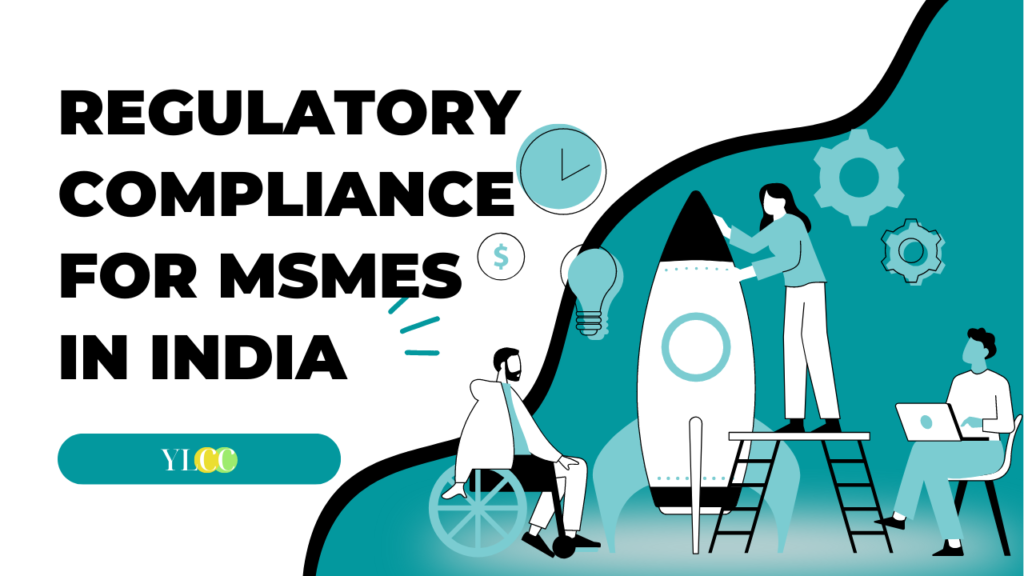
Imagine you are an entrepreneur in India, running a small business that’s making a big impact. You’re proud of the work you do, and you know that your business is making a valuable contribution to the economy. But, like many other MSMEs, you find that navigating the regulatory compliance landscape can be a bit of a headache. With so many rules and regulations to follow, it can be overwhelming to keep up with all the requirements.
Fortunately, you don’t have to go it alone. In this article, we’ll break down the regulatory compliance requirements that are essential for MSMEs in India to know. We’ll provide you with practical tips and guidance on how to manage these requirements effectively, so you can focus on what you do best: growing your business and making a positive impact on the economy.
What is Regulatory Compliance?
Regulatory compliance is like a set of rules that MSMEs need to follow to keep their business out of trouble. Think of it like playing a game, where you need to follow the rules to win. These rules include things like paying taxes, treating your employees well, and taking care of the environment.
Following these rules is not only important to avoid getting fined or sued, but it also makes people trust your business. Customers, suppliers, and investors want to work with companies that are responsible and ethical. So, by following the rules, you’re showing everyone that you’re a trustworthy player in the game of business.
Cracking the Code: Navigating Regulatory Compliance for MSMEs in India
Business Registration and Licenses: It’s Not as Scary as It Sounds
If you’re starting a new business in India, the first step is to register with the Registrar of Companies or the Registrar of Firms. Don’t worry, it’s not as scary as it sounds! Depending on the type of business, you may also need licenses and permits from local, state, or central government authorities. For example, if you’re in the food business, you’ll need an FSSAI license, and if you’re in manufacturing, you may need a pollution control certificate.
Taxes: Don’t Get Caught with Your Hand in the Cookie Jar
We know taxes can be a headache, but they’re an essential part of running a business in India. MSMEs are subject to various tax laws and regulations, such as the Goods and Services Tax (GST), Income Tax, and Professional Tax. Make sure you file your returns on time, maintain proper records, and adhere to deadlines to avoid any penalties.
Labor Laws: Take Care of Your Employees, and They’ll Take Care of You
As an MSME owner, it’s crucial to take care of your employees. You must adhere to various labor laws and regulations, such as minimum wage laws, payment of bonus laws, and provident fund regulations. And don’t forget about safety and health regulations – providing a safe working environment is essential for your employees’ well-being.
Environmental Compliance: Save the Earth, Save Your Business
We all want to do our part to save the planet, right? Well, MSMEs must comply with environmental laws and regulations to avoid pollution and protect the environment. Make sure you obtain a pollution control certificate to ensure you’re not violating any environmental laws.
Keeping the Government Happy: A Fun Guide to Managing Regulatory Compliance for MSMEs in India
Regulatory compliance can seem like a daunting task for MSMEs, but fear not! Here are some fun and practical ways to manage it effectively:
Stay Up-to-Date
No one likes being left behind, and the same goes for regulatory compliance. To avoid getting left in the dust, MSMEs can stay informed by checking out government websites, attending seminars, webinars, or even joining compliance-focused groups on social media.
Develop a Compliance Plan
Being organized is key to any successful venture, and regulatory compliance is no exception. MSMEs should develop a compliance plan that outlines the specific laws and regulations that apply to their business. The plan should identify the compliance requirements, deadlines, and responsible parties. Bonus points for making it colorful and exciting!
Maintain Proper Records
Keeping records can be tedious, but it’s essential for regulatory compliance. MSMEs must maintain records of financial transactions, employee records, tax returns, and compliance documentation. To make it more fun, businesses can try adding stickers or even creating a compliance-themed playlist!
Consult with Experts
Sometimes, MSMEs need a little help from their friends. Experts such as legal advisors, accountants, and consultants can provide guidance on compliance requirements, record-keeping, and other compliance-related matters. Plus, they can add a little spice to the process by making it a game or competition. Who can fill out the compliance forms faster, anyone?
Conclusion
You now know all about regulatory compliance for MSMEs in India. By following the compliance requirements, you’ll be able to avoid legal issues and fines while earning trust from customers, suppliers, and investors. Remember to stay up-to-date, develop a compliance plan, maintain proper records, and consult experts for guidance. With these tips, you’ll be able to focus on growing your business and leave the compliance worries behind. Happy compliance-ing!
This article has been written by Team YLCC. For any other queries, reach out to us at: queries.ylcc@gmail.com






